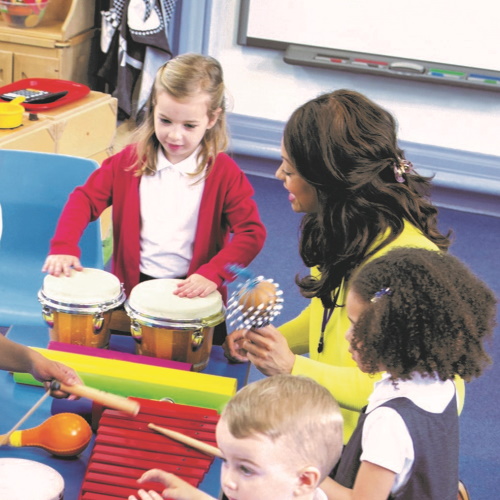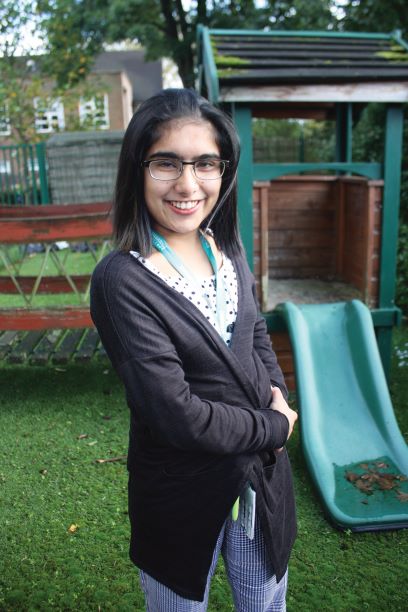The technical qualification (TQ) forms part of the T Level study programme. The purpose of the T Level Technical Qualification in Education and Early Years is to ensure students have the knowledge and skills needed to progress into skilled employment or higher-level technical training relevant to the T Level.
This TQ is suitable for 16 years plus students looking to develop both knowledge and skills in the education and early years sector.
This TQ will support students on to a range of progression routes including employment, higher education and higher apprenticeships.
The TQ is split into 2 component parts:
Core component: the knowledge and underpinning concepts, theories and principles as well as core skills for the education and early years sector.
Occupational specialisms:
- Early Years Educator
- Assisting Teaching
- Students will only complete one occupational specialism.
As part of achieving the overall T Level programme, students are required to complete an industry placement.
-
Entry requirements
GCSE English grade 4 and GCSE Maths grade 3
-
Who is the course for?
A T Level 1 is a Level 3 composite technical study programme, aimed at preparing young people for work, higher-level apprenticeships or higher education.
It comprises four key components:- An approved technical qualification (TQ), which includes the opportunity to specialise in at least one occupational role
- A substantial industry placement with an external employer (further information regarding the required number of hours can be found in the 'Where next - Job Opportunities' section.)
- Employability, enrichment and pastoral (EEP) elements
- In some cases, mandatory additional requirements (MAR), such as important licences to practise qualifications.
- An approved technical qualification (TQ), which includes the opportunity to specialise in at least one occupational role
-
Study methods
- Topic-based test
- Revision
- Active learning
- Reflect on placement experience
- Keep a journal during your industry placement.
- Link theory to practice (e.g. how behaviour strategies work in real settings).
- Topic-based test
-
How is the course assessed?
Assessment is the process of measuring a student’s skill, knowledge and understanding against the standards set in a qualification.
The core component is 100% externally assessed. External assessments are set and marked by NCFE. The core examination and ESP will assess students’ core knowledge, core understanding and core skills relevant to the occupations within the Education and Early Years TQ.
The OS components are also externally assessed through synoptic assignments, except for the observation element, which is internally marked by providers and externally moderated by NCFE. These synoptic assignments will assess the knowledge, understanding, skills and behaviours required to achieve threshold competence in the student’s chosen OS.
Providers must not give any feedback to the student about their performance in any of the assignments with the exception of the EYE assignment 1 part 1 competency observations, whereby an assessor may offer feedback and guidance using the feedback form provided. -
More information
The T Level study programme is eligible for UCAS points. Please check the UCAS website for more information.
Links with employers include: Norwood Green Primary School, Edward Betham CofE Primary School, Cherry Lane Primary School. -
Where Next – Job Opportunities
Students who achieve this TQ could progress to the following, depending on their chosen occupational specialism:
- Early Years Educator
- Education Technician
- Primary/Secondary/Tertiary Teaching and Support Assistant.
The Department for Education has created a career progression map showing how you can move from entry-level roles to leadership positions like: - Deputy Head
- Head Teacher
- Curriculum Lead
- Health Visitor.
- Early Years Educator
-
Where Next – Further Studies
After completing your T Level in Education and Early Years, you have several exciting progression routes available depending on your interests and goals. These include employment, higher education, and apprenticeships. You can progress to university-level study in areas such as:
- Primary Education
- Early Childhood Studies
- Social Work
- Education Studies
- Child Psychology
- Special Educational Needs and Disabilities (SEND).
Your T Level is worth up to 168 UCAS points (equivalent to 3 A-levels), which many universities accept for relevant degree courses.
- Primary Education
-
How to apply
To apply for a course either click the APPLY NOW button - fill out the form online and submit
OR download an application form here and post it to the address on the form.
When we have received your application we will contact you to arrange an interview time.

